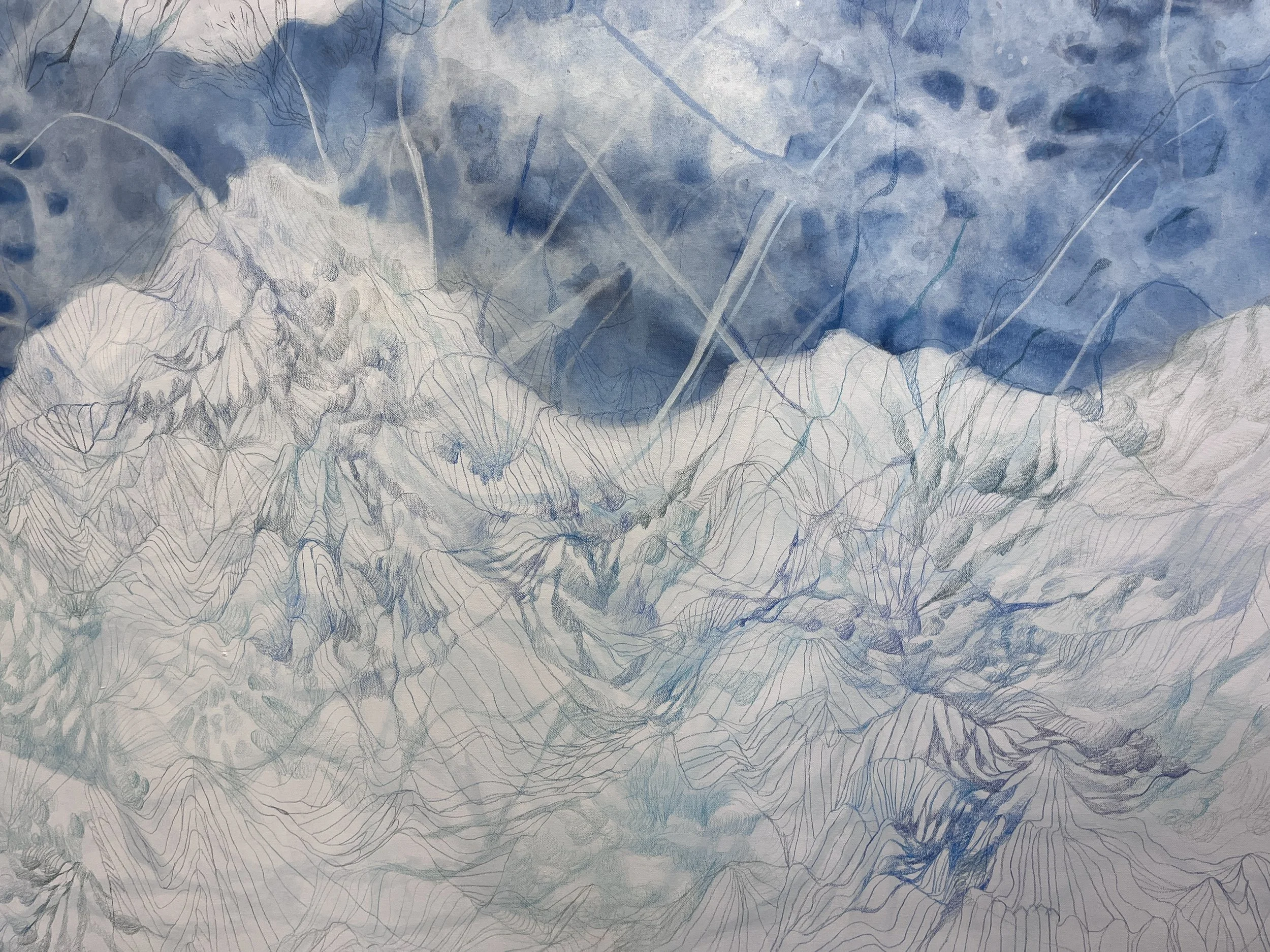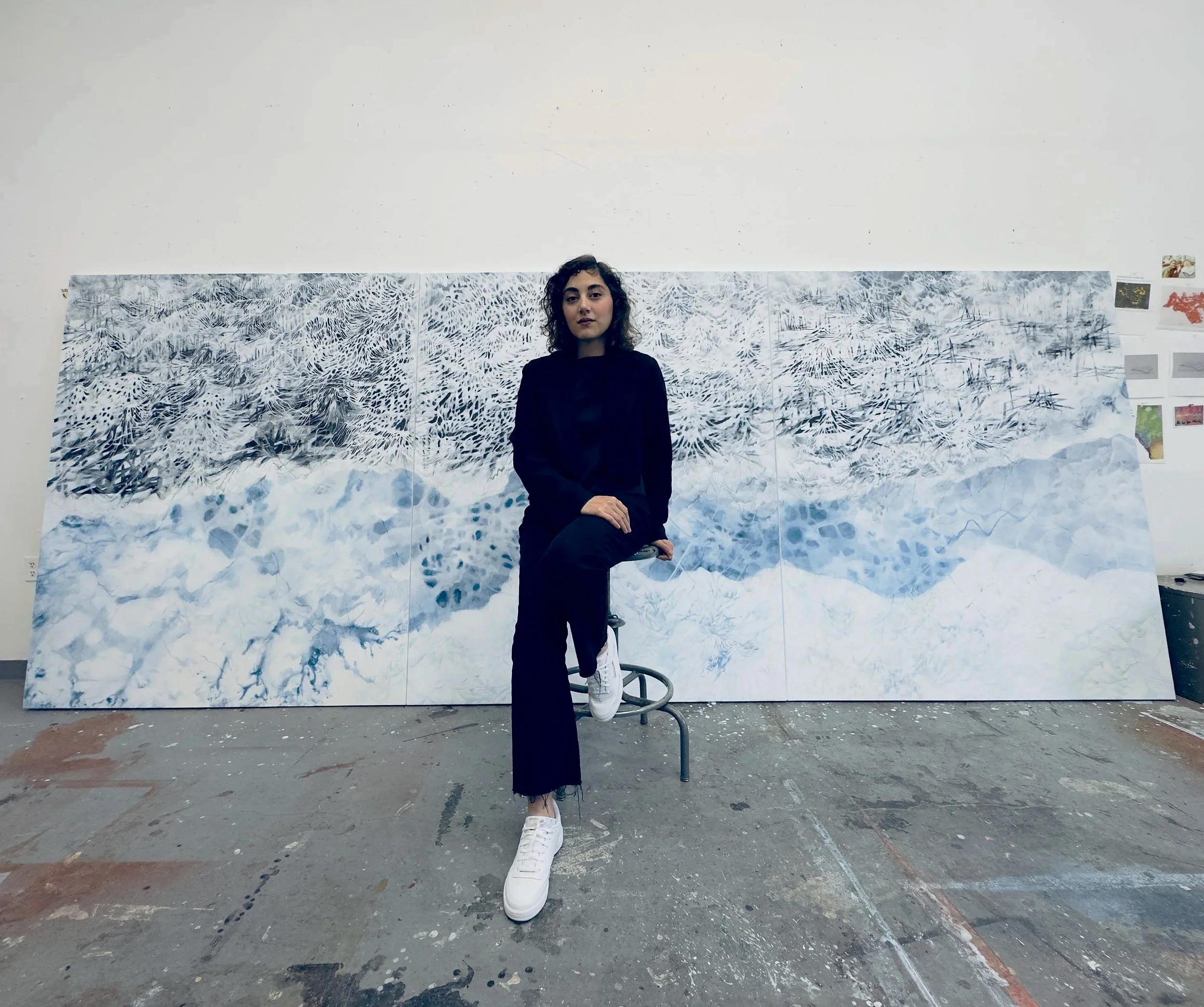
Biography
Yekta Tarki (she/her) is an Iranian artist based in Canada. She earned both her Bachelor’s and Master’s degrees in Fine Arts with a specialization in painting from the University of Art, Tehran, Iran. From early in her practice, landscapes—particularly oceans, seas, and waves—have been central to her work, serving as a lens through which she explored memory, nature, and the human condition. While her bachelor’s work emphasized landscape representation, her first Master’s thesis, Art in the Anthropocene: Reflection of a Ruined Environment in Western Contemporary Art, deepened her engagement with the human–nature relationship, situating her practice within broader conversations on the Anthropocene.
During this period, she began working at the intersection of art and science. Her Tohoku Tsunami Project marked the starting point of this shift, where she incorporated scientific data, geological graphs, reports, and topographical maps into her artistic process. This experience opened up new directions, leading her to integrate environmental science, geology, and posthumanist theory into her art.
Tarki’s projects employ a research-creation framework, combining academic research with artistic practice. Her methodology integrates scientific data, mapping, on-site investigation, ecological research, and field observation, which are then translated into a visual language through painting, drawing, and artist books. Her work is not intended as documentation, but as expressive interpretation—inviting reflection, emotional engagement, and critical awareness.
Currently, as an MFA candidate at the University of Calgary, she focuses on climate change and its destructive impacts, with a particular emphasis on wildfires. Her thesis project investigates the 2016 Fort McMurray wildfire in Alberta, Canada. Drawing on scientific data, her paintings represent the timeline of the fire, from ignition to aftermath. Through this project, she aims to raise awareness, foster community engagement, and inspire empathy around the urgent realities of climate change.
